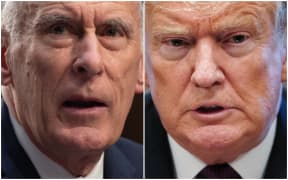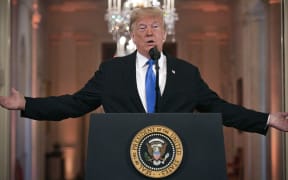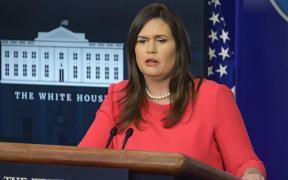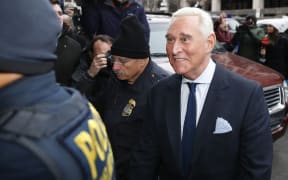The US says it is pulling out of a landmark nuclear arms treaty with Russia, arguing that it should not be constrained by a deal Moscow is violating with "impunity" by deploying banned missiles.
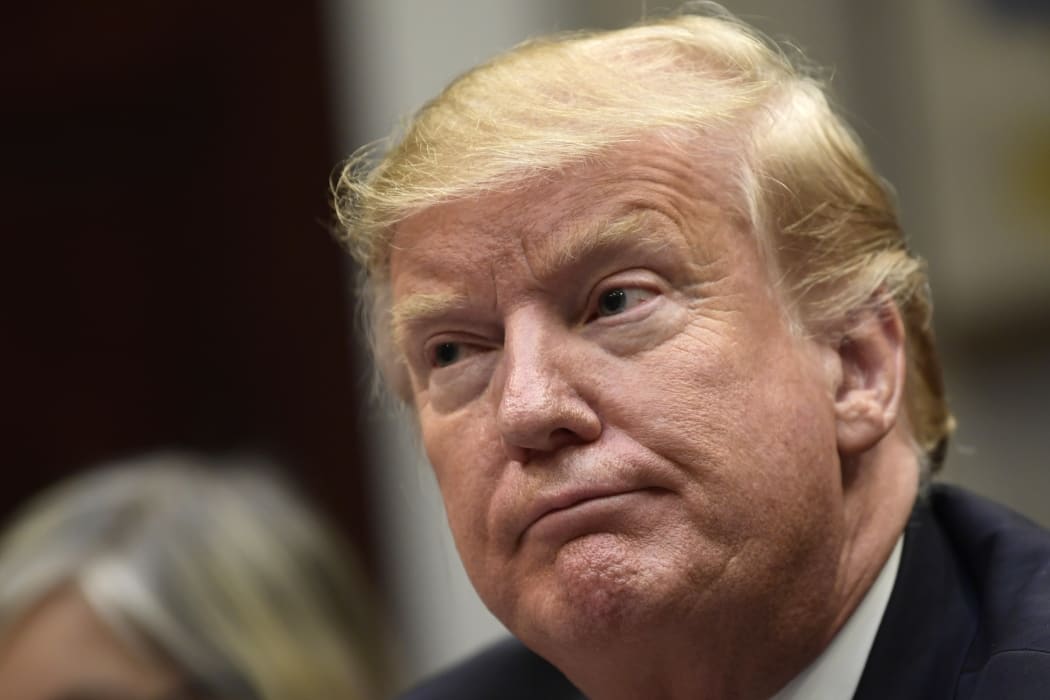
US President Donald Trump Photo: AP Photo / Susan Walsh
Democrats in Congress and some arms control advocates slammed the decision as opening the door to an arms race.
US President Donald Trump repeated a yearslong US accusation that Russia secretly developed and deployed "a prohibited missile system that poses a direct threat to our allies and troops abroad".
He said the US had adhered to the Intermediate-Range Nuclear Forces (INF) treaty since it was signed in 1987, but Russia had not.
"We cannot be the only country in the world unilaterally bound by this treaty, or any other," Mr Trump said in a written statement.
Russia has long violated the Intermediate-Range Nuclear Forces Treaty, developing and fielding a prohibited missile system that threatens our allies and troops abroad. Tomorrow, the U.S. will suspend its obligations and begin the process of withdrawing from the treaty.
— The White House (@WhiteHouse) February 1, 2019
The United States has adhered to the INF Treaty for more than 30 years, but we will not remain constrained by its terms unless Russia comes into verifiable and enforceable compliance.
— The White House (@WhiteHouse) February 1, 2019
The decision reflects the Trump administration's view that the arms treaty was an unacceptable obstacle to more forcefully confronting not only Russia but also China.
China's military has grown mightily since the treaty was signed, and the pact has prevented the US from deploying weapons to counter those being developed in Beijing.
Pulling the plug on the INF pact, however, risks aggravating relations with European allies, who share the administration's view that Russia is violating the treaty but who have not endorsed a US withdrawal.
Secretary of State Mike Pompeo, speaking to reporters after Mr Trump's statement, said Russia would be formally notified on Saturday that the US was withdrawing from the treaty, effective in six months.
In the meantime, starting Saturday, the US would suspend its obligations under the treaty.
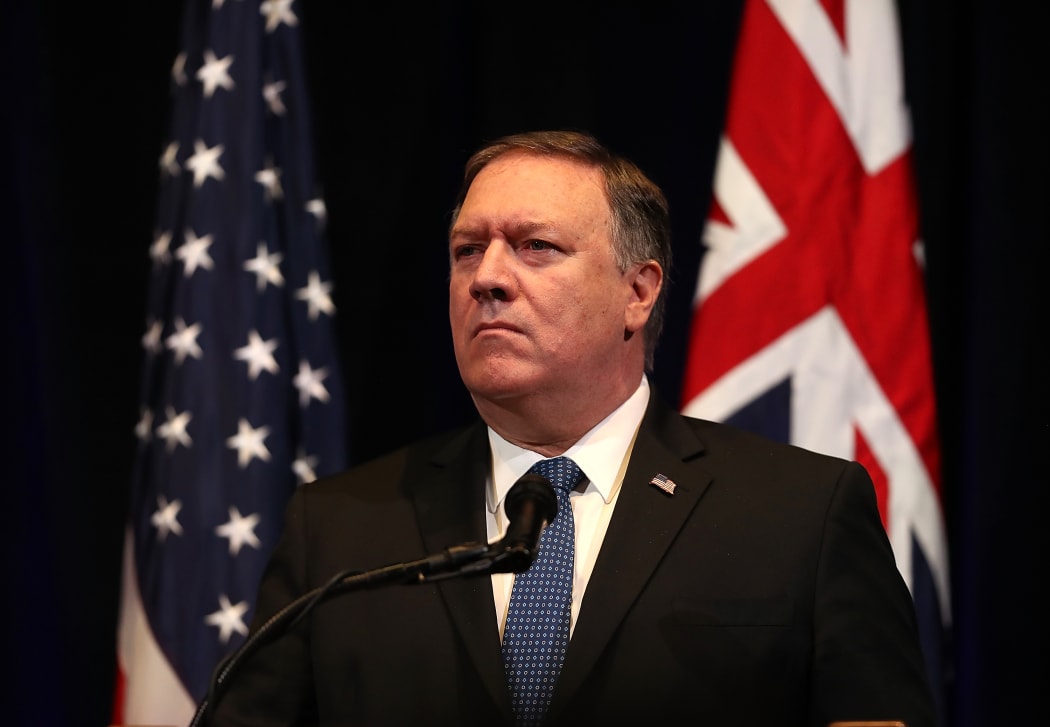
Mike Pompeo, US Secretary of State Photo: AFP/ via 2018 Getty Images
Mr Pompeo said that if, in the coming six months, Russia accepted US demands that it verifiably destroy the cruise missiles that Washington claimed were a violation, then the treaty could be saved.
If it does not, "the treaty terminates," he said.
Administration officials have dismissed concerns that the treaty's demise could trigger a race to develop and deploy more intermediate-range missiles.
US officials have emphasised their fear that China, which is not party to the treaty, is gaining a significant military advantage in Asia by deploying large numbers of missiles with ranges beyond the treaty's limit.
Whether the US will now respond by deploying INF noncompliant missiles in Asia is unclear. In any case, it seems unlikely Beijing would agree to any negotiated limits on its weaponry.
Russia accused the US of unilaterally seeking to neuter the treaty and of resisting Russian attempts to resolve the dispute.
"I 'congratulate' the whole world; the United States has taken another step toward its destruction today," Konstantin Kosachev, head of the foreign affairs committee in Russia's upper house of parliament, said after Mr Trump's announcement.
INF was the first arms control measure to ban an entire class of weapons: ground-launched cruise missiles with a range between 500km and 5,500km.
At the time, in the late stages of the Cold War, the US and its allies were mainly concerned by the perceived threat of Russian medium-range nuclear missiles that were targeted at Europe.
The US deployed similar missiles in response, in the 1980s, leading to negotiations that produced the INF treaty.
Adam Smith, a Washington state Democrat and new chairman of the House Armed Services Committee, blasted Mr Trump for raising the risk of nuclear war.
"The administration's ideological aversion to arms control as a tool for advancing national security is endangering our safety, as well as that of our allies and partners," Mr Smith said. "The risk of miscalculation or misunderstanding is already higher than at any point since the end of the Cold War, and this decision only makes it worse."
US officials said they had little reason to think Moscow would change its stance in the next six months.
"We have raised Russia's noncompliance with Russian officials - including at the highest levels of government - more than 30 times," Mr Pompeo said. "We have provided Russia an ample window of time to mend its way. Tomorrow that time runs out."
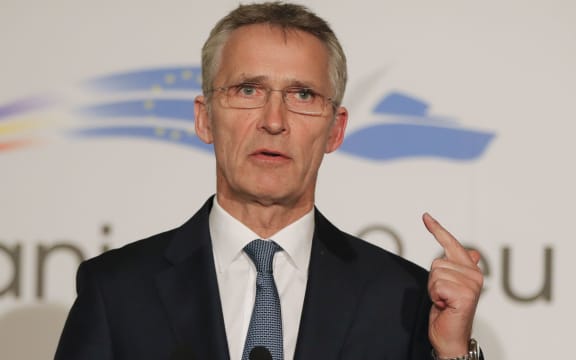
Jens Stoltenberg Photo: AP / Vadim Ghirda
Jens Stoltenberg, the NATO secretary-general, said in an interview Friday with The Associated Press that Russia could still save the treaty by returning to compliance before the US withdrawal took effect this summer.
"But at the same time, we have started to assess the consequences, look into options," Mr Stoltenberg said. "We need to make sure that we respond as an alliance, all 29 allies, because all allies are involved and all allies are affected."
Mr Trump said his administration "will move forward with developing our own military response options".
But senior Trump administration officials said Friday that they didn't expect any immediate testing or deployment of weapons that were banned under the treaty.
The current Pentagon budget includes $48 million for research on potential military responses to the alleged Russian violations, but US officials said the options did not include a nuclear missile.
The officials, speaking after Mr Trump's announcement, said the US was not in position to flight test, let alone deploy INF noncompliant missiles as a counter to Russia any time soon. The officials spoke on condition of anonymity under ground rules set by the White House.
One official said allies would be consulted before any decisions were made on countering the Russian missiles that allegedly violate the INF treaty.
Leaving the treaty would allow the Trump administration to counter the Chinese, but it's unclear how it would do that.
US security concerns are complicated by what US intelligence officials earlier this week called efforts by China and Russia to expand their global influence, particularly in Asia and the Middle East.
"China and Russia are more aligned than at any point since the mid-1950s, and the relationship is likely to strengthen in the coming years as some of their interests and threat perceptions converge," Director of National Intelligence Dan Coats said in testimony Tuesday to Congress.
US withdrawal raises the prospect of further deterioration in US-Russian relations, which already are arguably at the lowest point in decades, and debate among US allies in Europe over whether Russia's alleged violations warrant a countermeasure such as deployment of an equivalent American missile in Europe.
The US has no nuclear-capable missiles based in Europe; the last of that type and range were withdrawn in line with the INF treaty.
Nuclear weapons experts at the Carnegie Endowment for International Peace said US withdrawal under current circumstances was counterproductive, even though Russia's violations were a serious problem.
"Leaving the INF treaty will unleash a new missile competition between the United States and Russia," they said in a statement.
- AP
